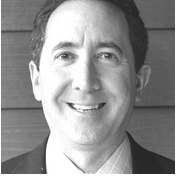Keynes just won’t die. Another rally in UK bonds on the day the BoE is ending its bond buying support because of what looks like the end of Kwarteng’s short stint and the almost complete reversal it seems of the Truss government’s tax proposal’s. As the UK economy is in a recession, all Truss wanted to do was both prevent the corporate tax rate from jumping to 25% from 19% next year, let people keep more of what they earn and even lower the stamp tax in the face of a slowing housing market. Instead, the only economic policy that is accepted nowadays, and everywhere, is if the government just keeps spending more money that they don’t have. The 10 yr gilt yield is lower by 24 bps after a similar drop yesterday. It’s now under 4% at 3.96%. The 30 yr yield is lower by 27 bps, also seen yesterday to 4.28%. The pound is lower after the 3% bounce in the past two days.
Bonds are rallying in other European countries too and that has spilled over to a bounce in the US.
While much attention continues to be on what the Fed will do next, especially after CPI yesterday, we’ve also heard a lot this week from ECB members who with a .75% deposit rate and inflation around 10% is really behind where they should be. They seem to want to get to a 2% rate by year end and for some reason some members like council member Villeroy are calling this a neutral rate. They however have things mixed up as it’s only a neutral rate if the inflation rate is around 2%. It is nowhere near one with inflation 5x that. There has also been discussion about starting QT next year.
The Monetary Authority of Singapore altered its FX trading band in a move that tightens policy as they join many other central banks but in its own monetary way. They said “In the quarters ahead, the drag on economic activity from the globally synchronized tightening in monetary policy will intensify. While inflation should moderate, it will remain high for some time.” The Singapore dollar is higher and this small city/state will continue to benefit from those leaving Hong Kong. They also reported that Q3 GDP rose 1.5% q/o/q, double the estimate and by 4.4% y/o/y as the country is now fully opened up.
Jamie Dimon said this in his company’s earnings press release: “In the US, consumer continue to spend with solid balance sheets, job openings are plentiful and businesses remain healthy. However, there are significant headwinds immediately in front of us – stubbornly high inflation leading to higher global interest rates, the uncertain impacts of QT, the war in Ukraine, which is increasing all geopolitical risks, and the fragile state of oil supply and prices. While we are hoping for the best, we always remain vigilant and are prepared for bad outcomes so we can continue to serve customers even in the most challenging of times.”
The September Cass Freight shipments index fell 2.9% m/o/m after a 5.5% rise in August. Versus last year it is still up 4.8% and they gave 5 reasons for the y/o/y strength, 1)retail discounting to clear excess inventory in some categories, 2)seasonal inventory building ahead of the holidays, 3)repositioning mis-timed inventory, 4)easing supply constraints, particularly in auto production, 5)easing prior-year comparisons.
While the implied freight rates were still up 16% y/o/y, “The supply/demand balance in US trucking markets has loosened significantly this year and as a result freight rates are leveling off and set to slow sharply in the months to come. While shippers aren’t seeing any real savings yet, considerable cost relief is now highly probable for 2023, which we think will be welcome news for the broader inflation picture,” said Cass.
Mainly because of the drop in commodity prices, PPI in September in China rose just .9% y/o/y, about in line with the 1% estimate. This follows a 2.3% rise in August. Consumer prices grew by 2.8% y/o/y, one tenth under the forecast. Food prices jumped 8.8% y/o/y but ex this and energy, prices were only up .6%. China has seen low inflation compared with the rest of the world but at the cost of self-made economic damage from its covid approach and the unwind of its real estate bubble.
 Peter is the Chief Investment Officer at Bleakley Advisory Group and is a CNBC contributor. Each day The Boock Report provides summaries and commentary on the macro data and news that matter, with analysis of what it all means and how it fits together.
Peter is the Chief Investment Officer at Bleakley Advisory Group and is a CNBC contributor. Each day The Boock Report provides summaries and commentary on the macro data and news that matter, with analysis of what it all means and how it fits together.